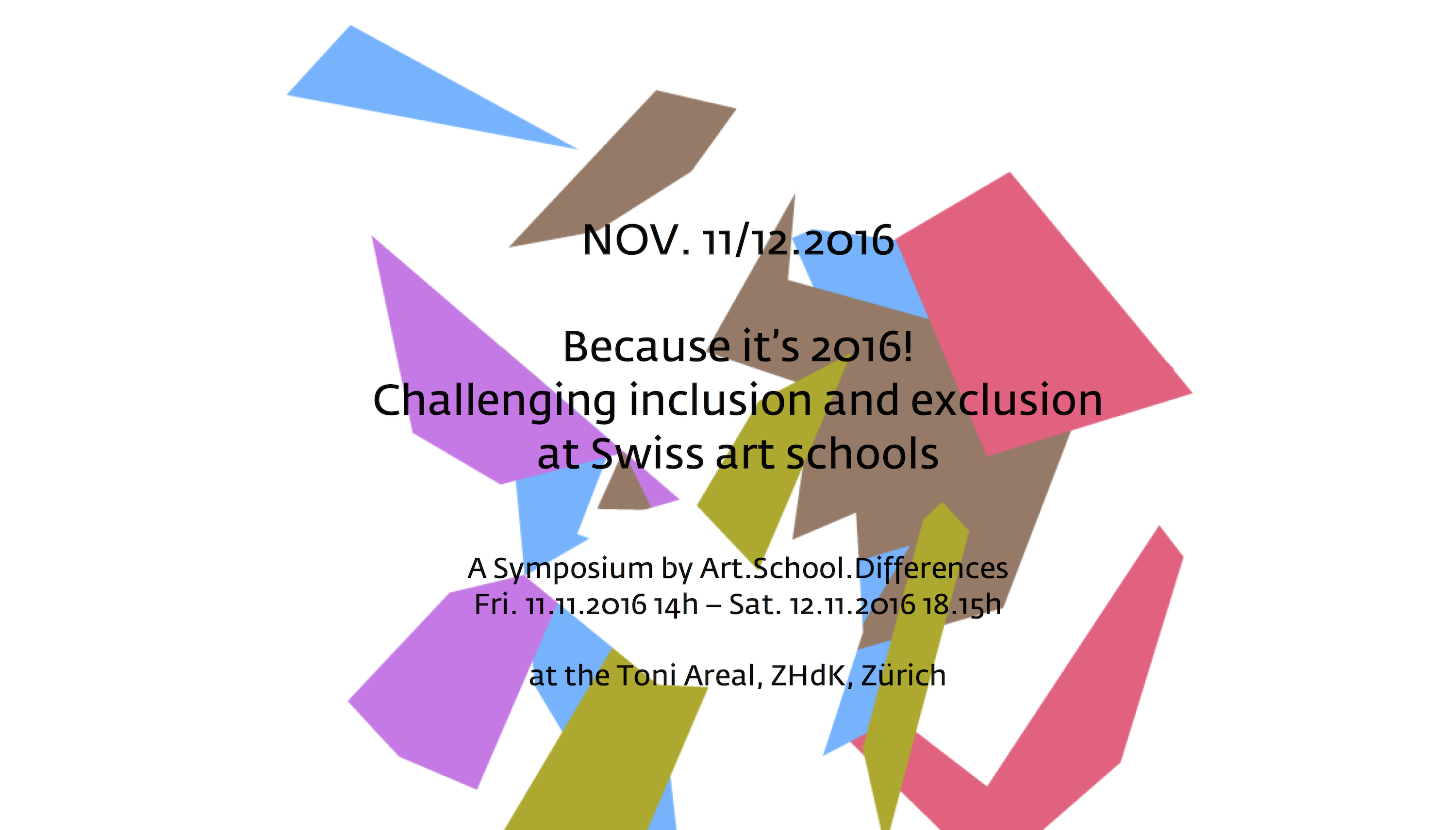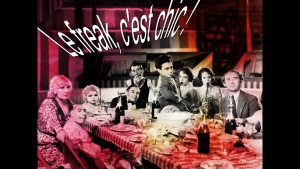A Symposium by Art.School.Differences
Venue: Toni Areal, Zürich on 11 & 12. November 2016
Times: FRI 14-21.15h; SAT 9-18.15h
Please register (free admission): a_s_d.eventbrite.com and indicate if you need special accommodation
A year ago, when asked “why it is so important to have a gender balanced cabinet,” the newly elected Prime Minister of Canada Justin Trudeau replied, “because it’s 2015!” It is fitting then, in 2016, to renew a collective commitment. Through our research and collaborations in Art.School.Differences we question social inequality in art schools and examine how exclusion interweaves with gender, the body, class, diversity, and internationality, as well as interrogate the structural implications this has on perceptions of the ‘ideal art student.’ It is our goal to understand processes of inclusion and exclusion at work in higher art education in order to challenge, counter, and eventually overturn them. By striving for more equality, plurality, and heterogeneity among the institutions’ students, staff, and curricula we would like to encourage Swiss art schools to become globally inclusive in 2016.
Now, as the research project comes to a close, we would like to encourage further research, initiatives, and interventions to challenge inclusion and exclusion in higher (art) education. Because it’s 2016!
We look very much forward to welcome you to this event, enabling various discussions around inclusionary and exclusionary processes, engaging with anti-discriminatory practices and looking beyond insights acquired through Art.School.Differences!


